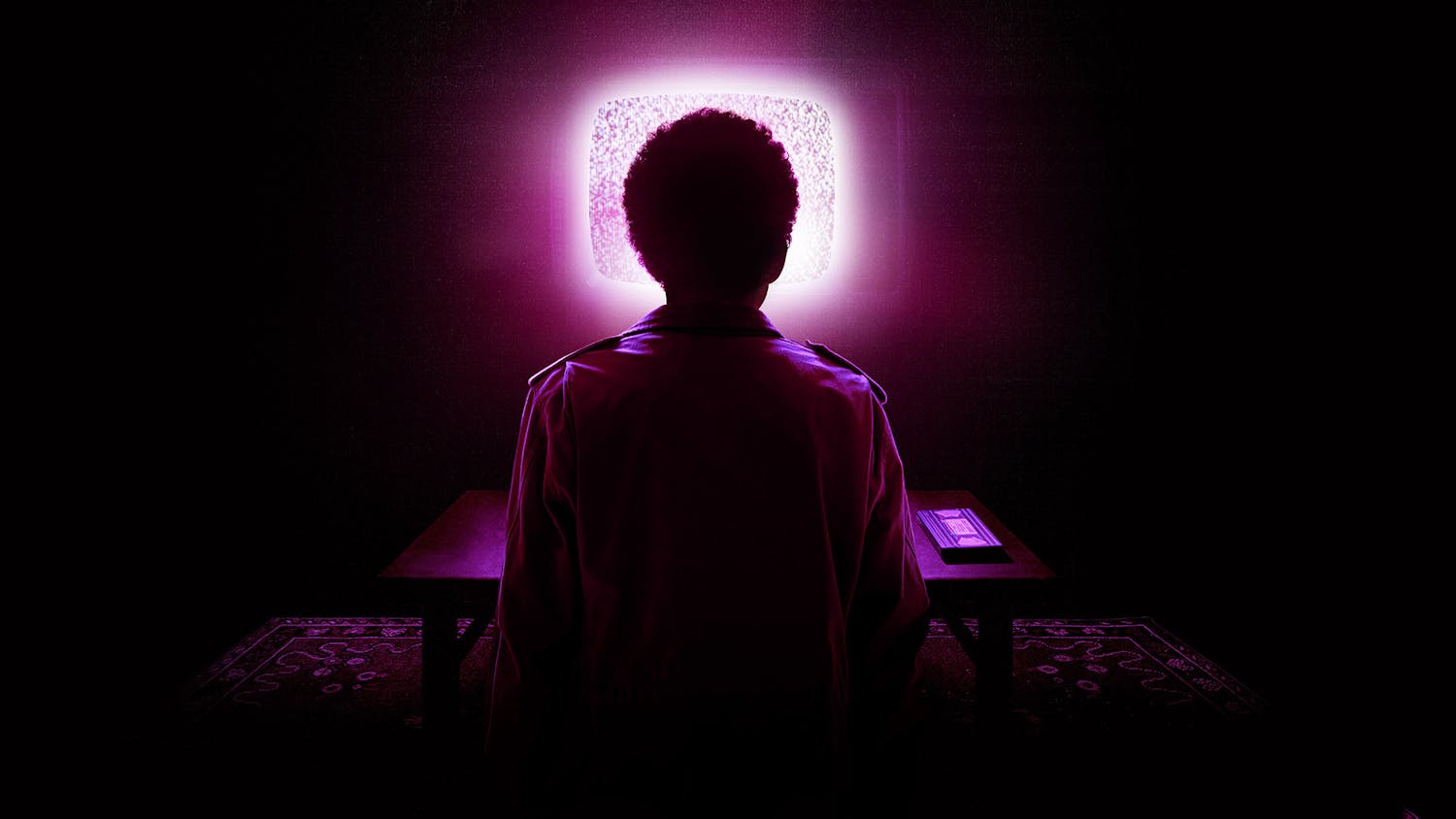A mixture of improv comedy and serious discussion defined the performance of Sex Signals in the McCullough Social Space on Wednesday night. The show touched on issues of dating, sex and — most importantly — the notion of consent. Since its 2000 debut, Sex Signals has been performed over 4,000 times at over 900 college and military institutions. In addition to utilizing humor and improv, the show is largely an interactive experience with the audience.
Wednesday’s show featured the two main actors from Sex Signals, Annie Rix and Eric “Pogi” Sumangil, who performed a few skits highlighting common or stereotypical scenarios involving dating or consent, and frequently looked to the audience for “answers” to these situations in their skits. The skits varied in their seriousness, from an awkward first encounter to a college student raping his study partner after a few beers. At the end of the performance, Rix and Sumangil fielded a discussion with the audience about their views of consent and courses of action to take to help prevent rape.
Rix and Sumangil have been members of the Sex Signals company since 2009. Prior to performing in the show, every cast member is required to undergo training to become qualified to educate and perform these sensitive topics.
“We are all professionally trained as advocates to be able to talk about this type of subject,” said Rix. “We go through extensive training.”
Since Sex Signals is so dependent on audience participation and is performed across the country in many different locations — including liberal, conservative and military institutions — the actors must make variations in the performance to suit the needs of individual crowds.
“I think sometimes it’s just a shift in language to make the message more palatable based on what the audience is bringing to the room,” said Sumangil. “As much as it is a comedy-based show, it’s also an improvisational-based show, so the audience takes on its own energy and its own character, and people in the audience contribute to that.”
Rix noted that for military performances, the performers need to use certain terms or jargon so that the audience can relate. Sumangil explained that this builds credibility with the audience — it shows that the performers are knowledgeable about that particular group.
“We couldn’t just stand on a stage and do the show,” said Rix. “We have to have the audience there … the way this show is shaped is based off of how the audience is responding. We use the audience to look at stereotypes of men and women … the whole end of the show is a [dialogue] with the audience, and that can go a lot of different ways depending on what they ask and what they want to talk about.”
The actors explained that the ideal audience for Sex Signals is around 40 to 50 people. Sumangil noted that if there are only a few people in the audience, they might not feel comfortable talking about their views on rape or consent. He also noted that in a much larger crowd, people might not want to share their views in front of so many people, particularly in a college setting or during a first year orientation performance.
“Students don’t want to be singled out,” said Rix.
Similarly, Sex Signals does not want to single out any instance or context of rape. For example, many people imagine rape occurring in a dark alley with a stranger, and while this may be the case in some instances, a large majority of rape occurs in a personal dwelling with someone who is an acquaintance or loved one. The show also primarily addresses male-female rape, since it is statistically the most common instance of rape. Both Rix and Sumangil, however, made it clear that they do not want to speak strictly in these contexts.
“A lot of it is based off of statistical evidence … [research suggests] the vast majority of rape or sexual assault that is committed is usually with a male attacker and female survivor,” said Sumangil. “We don’t want to seem to come off as though … [sexual assault] doesn’t happen in certain other contexts. Of course it does, and we want to be respectful of the potential audience members, because you just never know. We do address male survivors and that’s probably more apparent in the military where it’s a very male-heavy population.”
They also made it clear that the performance is not intended to normalize or make fun of any form of rape or issue of consent. The survivor is never the butt of any jokes in the performance. Rather, they use current cultural references and caricatures of stereotypes to create humor and connect to the audience.
“The humor itself is strategic in that … we make fun of our own assumptions in society based on gender [and those interactions],” said Sumangil. “We’ll pose a question and five people will come up with the answer at the same time and they’ll all laugh because … they all said [the same word] at the same time. That points to the fact that, see, we are all ingrained … and taught that these stereotypes are apparent in our lives.”
Sumangil hopes that in drawing attention to stereotypes, people can change attitudes about gender expectations or at least be more mindful about them when interacting with other people.
One notable aspect of the show was a segment where Sumangil played a man with stereotypical “masculine” characteristics provided by the audience, such as being macho and sex-obsessed. The scene depicted Sumangil’s character hitting on Rix’s “stereotypical female” caricature, a submissive woman who ate only salad, was “always a virgin” and even made sandwiches. For this scene, each audience member was given a piece of paper with the word “stop” on it, and was told to hold up the sign whenever they felt the scene should end or whenever a moment signified trouble. Sumangil entered the scene with two imaginary glasses of water, one of which was spiked with a drug. Immediately, some audience members held up their “stop” signs, but the scene continued, with Sumangil putting his arm around Rix, who was clearly uncomfortable. As the scene escalated and Rix became more uncomfortable, more “stop” signs rose up.
Moments like these helped give Sex Signals the audience connection the actors strive to create, particularly in raising awareness of preventing sexual assault before it happens. For instance, after the scene, Rix noted that people had supported her character by holding up the “stop” signs, but Sumangil countered that no one actually said “stop.” This sentiment was carried over into the discussion segment at the end of the performance, where Rix and Sumangil hammered home the point that it’s not enough to just think something is wrong — taking action is vital to prevent someone from being harmed or raped. The performers also noted that, while it might be a scary or embarrassing thing to do, taking action against a possible rapist is necessary to prevent sexual assault, and if someone looks uncomfortable in a situation, there are subtle ways to remove them without direct confrontation — for instance, asking them to accompany you to the bathroom.
Sumangil wanted audiences to come away from Sex Signals with some sort of message, even if they aren’t immediately on board with the ideas presented in the performance. Often, it takes a while for the message to sink in, but the hope is that if an audience member encounters a similar situation, say, at a party, he or she might know how to better handle it because of Sex Signals. Rix also emphasized the importance of learning to “check in” with a partner and how important it is for audiences to understand the significance of consent.
If the student participation during the performance was any indication, Sex Signals succeeded in its goal. The interactive nature of the show brought the audience together in discussion — by presenting such an important issue as a humorous performance rather than a discussion panel where it might be uncomfortable to state views, students were better able, and more willing, to connect and participate. And, as Sumangil said, even if students came away with only a mere liking of the show, the message still might hit home with them weeks or years later when a Sex Signals situation arises.
For more information on the College’s sexual assault policies, visit go/sexualassault.
McCullough Show Confronts Issues of Sex, Consent
Comments



